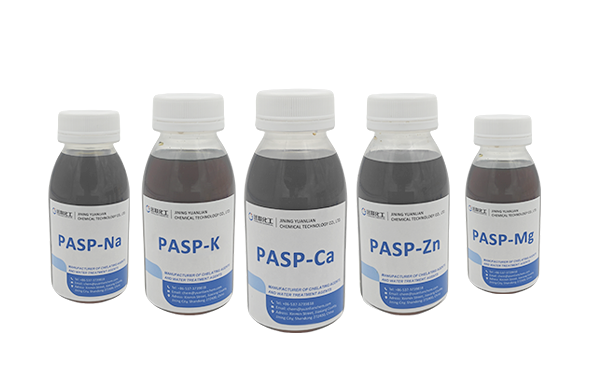
Unlock Your Crop's Potential: How Polyaspartic Acid (PASP) Boosts Nutrient Efficiency & Sustainable Yields
If you're concerned about rising input costs, nutrient leaching into waterways, and the long-term health of your soil, you're not alone. The quest for a more efficient and sustainable agriculture solution is global. What if there was a way to make the fertilizer you already use significantly more effective, all while supporting environmental goals?
Enter Polyaspartic Acid (PASP) – a powerful, yet natural, biostimulant and nutrient enhancer that is changing how growers approach plant nutrition.
What Exactly is Polyaspartic Acid (PASP)?
Polyaspartic Acid is a water-soluble, biodegradable polymer synthesized to mimic naturally occurring substances. Its structure is inspired by the proteins found in mollusk shells, which efficiently bind minerals from seawater. This innovative design makes PASP an exceptional tool for modern agriculture, combining high performance with an excellent environmental profile.

The Science of Efficiency: How PASP Works Its Magic
PASP's power lies in its unique molecular structure. Think of it as a "magnet" or "escort" for plant nutrients.
-
Chelation & Protection: The PASP molecule has multiple binding sites that grab hold of vital nutrients like Nitrogen, Phosphorus, Potassium, and key micronutrients (Zn, Fe, Ca, Mg). This chelation process prevents these nutrients from becoming locked up in the soil or washed away by rain and irrigation. They remain soluble and available for plant roots to absorb.
-
Root System Stimulation: Beyond protecting nutrients, PASP actively stimulates root development. It encourages the growth of a larger, denser, and healthier root system. A bigger root mass means a greater surface area for nutrient and water uptake, directly translating to stronger, more resilient plants.
-
Improved Stress Tolerance: Plants treated with PASP are better equipped to handle environmental stresses such as drought, salinity, and extreme temperatures. By improving the plant's overall vitality and nutrient status, PASP helps maintain growth and yield potential even under less-than-ideal conditions.
Why Farmers Are Choosing PASP: Key Benefits for Your Operation
-
Increase Fertilizer Use Efficiency (FUE): Get more from your investment. Studies show PASP can improve nutrient utilization rates by 20-40%, allowing for potential reductions in fertilizer application without sacrificing yield.
-
Boost Crop Yield & Quality: Healthier plants with superior nutrient access produce higher yields and better-quality harvests—think improved brix levels, uniformity, and shelf life.
-
Enhance Soil Health: By reducing fertilizer salt index and preventing nutrient fixation, PASP helps mitigate soil compaction and salinization over time. It supports a healthier soil ecosystem.
-
Commit to Sustainability: PASP is non-toxic and fully biodegradable. Using it aligns with regenerative farming practices, reduces nitrogen runoff into watersheds, and lowers the carbon footprint of your farming operation.
See the Difference: Application Made Simple
PASP is versatile and easy to apply, making it a practical choice for any operation:
-
Seed Treatment: Coat seeds to give seedlings a strong, early start.
-
Fertilizer Mixing: Blended directly with liquid or solid fertilizers for in-furrow or base application.
-
Foliar Spray: Applied directly to leaves for quick nutrient absorption and efficiency boost during key growth stages.
Join the Movement Toward Smarter Agriculture
The adoption of Polyaspartic Acid isn't just about a single season's gain; it's about investing in the long-term productivity and sustainability of your land. It represents a smarter, more precise way to farm that benefits both your bottom line and the environment.
Yuanlian Chemical specializes in the production of polyaspartic acid (PASP),tetrasodium iminodisuccinate(IDS), GLDA, MGDA etc. with stable quality and excellent quantity!





Contact us